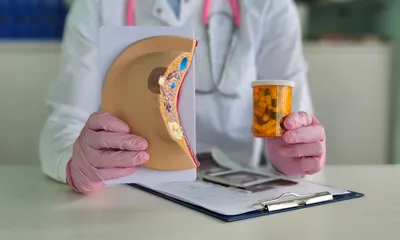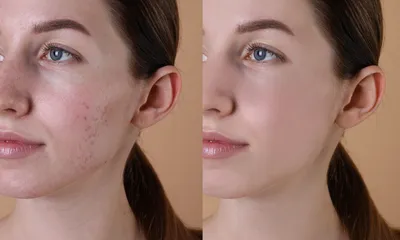Allergies
-
Description
-
Signs & Symptoms
-
Anatomy
-
Cause
-
Diagnosis
What are Allergies?
An allergy is when your body’s immune system is oriented to understand that a substance of some sort is an invasive threat to the body, and it reacts by producing histamines. These are chemicals produced by mast cells that are very necessary when an actual threat enters the body but cause the inflammatory response that leads to allergy symptoms when a person is exposed to pollen, dust, pet dander, or whatever else they are allergic to.
The most common type of allergy is an IgE-mediated reaction allergy where the immunoglobin E antibody is released in response to the immune system detecting an allergen. A person is usually born with allergies, and an allergy is not something that can be cured. Instead, a person with one or more of them will need to manage their condition.
In some cases, an allergic reaction can be a very serious health risk, as with food allergies or insect stings for example. For most contact allergens, however, the result will be temporary discomfort and mild symptoms.
What Causes Allergies?
The reason most people will have an allergy is because they’ve inherited it from a parent. This is especially true for pollen allergies, or seasonal allergies as they are also called. Environmental exposure can also be behind what causes allergies, as can lifestyle factors. Women may experience allergies during pregnancy but then cease having any type of allergic response to that substance after they’ve given birth. Certain diseases will make people more prone to having allergies.
Allergies Symptoms
The allergies symptoms a person experiences will vary based on the type of allergen they’ve been exposed to and the type of allergic reaction they are having. Symptoms may include rhinitis (runny nose, sneezing, and congestion), coughing, watery eyes, itching, rash, gastrointestinal problems, and swollen mucus membranes. Moderate symptoms may include angioedema (pronounced local swelling of the face, lips, or tongue), hives, wheezing, nausea, or vomiting.
Severe allergies symptoms are possible if a person has exposure to substances they are highly allergic to. There will be cause for immediate concern if the person experiences anaphylaxis, and this is a possibility with food or insect sting allergic reactions.
Allergies Treatment
The most conventional approach to allergies treatment when the person has a mild to moderate allergic response is to use antihistamine medications like Allegra or Benadryl. People who are allergic to bee stings will want to keep an EpiPen with them for immediate administration to prevent the chance of their going into anaphylactic shock. Some eye drops may be helpful for itchy eyes resulting from allergic rhinitis caused by seasonal allergies.
Another recommended part of allergies treatment will be to try to avoid triggers as best as possible. This can involve everything from avoiding exposure to fresh cut grass or being in close proximity to blooming flowers for people with pollen allergies to keeping a distance from certain animals if they have pet dander allergies.
Signs & Symptoms
- Sneezing
- Itching of the nose, eyes, or roof of the mouth
- Runny, stuffy nose
- Watery, red, or swollen eyes
- Hives
- Swelling
- Coughing
- Wheezing
- Shortness of breath
Anatomy
- Nasal passages
- Eyes
- Skin
- Lungs
- Throat
- Immune system
Cause
- Pollen
- Dust mites
- Animal dander
- Insect stings
- Food
- Medications
- Latex
- Mold
Diagnosis
- Skin prick test
- Blood test (IgE)
- Patch test
- Elimination diet
- Physical examination
- Medical history



